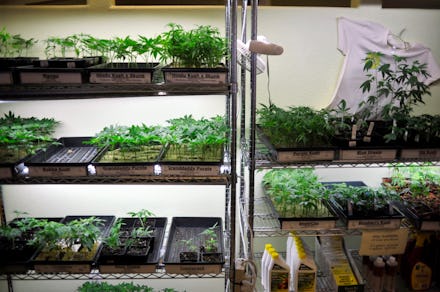Medical marijuana may be slowing down the opioid epidemic

One new tool in the battle against the growing opioid epidemic: medical weed.
That's according to the result of a new study from researchers at Columbia University's School of Public Health which looked at car fatalities across 18 states, stretching between 1999 through 2013.
States with medical marijuana saw fewer opioid-related fatalities than those which didn't, researchers found.
"We would expect the adverse consequences of opioid use to decrease over time in states where medical marijuana use is legal, as individuals substitute marijuana for opioids in the treatment of severe or chronic pain," said June H. Kim, the study's lead author, in a press release reported by the Washington Post.
The study is welcome news amidst an opioid epidemic that has been accelerating for years.
Deaths resulting from opioid overdose quadrupled between 1998 and 2008, and four out of every five people who abuse heroin begin their addictions by abusing prescription opioids.
That prompted the Food and Drug Administration to up its requirements for warning labels on opioid prescriptions.
Back in February, President Barack Obama proposed setting aside $1.1 billion to combat the spread of opioid abuse.
Just last month, a powerful new form of opioid called carfentanil was linked to 60 overdoses in Ohio and Indiana in just two days.
Four states will weigh medical marijuana initiatives this November, a record, and another five are considering legalizing the drug for recreational use outright.